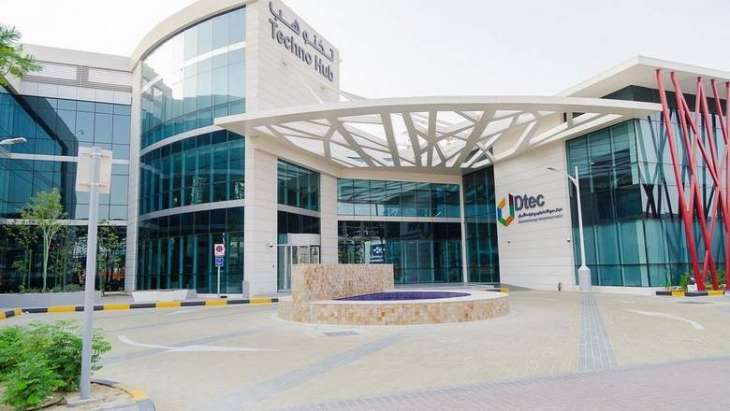A report by the Dubai Technology Entrepreneurship Campus, Dtec, revealed that the UAE ranks first in the region in terms of enterprise adoption of artificial intelligence (AI) applications with an annual growth rate of 33.5 per cent. Dtec is a wholly owned technology hub by Dubai Silicon Oasis Authority, DSOA.
DUBAI, (Pakistan Point News - 11th Dec, 2018) A report by the Dubai Technology Entrepreneurship Campus, Dtec, revealed that the UAE ranks first in the region in terms of enterprise adoption of artificial intelligence (AI) applications with an annual growth rate of 33.5 per cent. Dtec is a wholly owned technology hub by Dubai Silicon Oasis Authority, DSOA.
The report titled, 'Artificial Intelligence Adoption in Enterprise 2018', was prepared in collaboration with ArabNet and startAD, an innovation and entrepreneurship platform anchored at New York University Abu Dhabi and powered by Tamkeen,.
Unveiled today at the Dtec Forum for Emerging Technology Companies at Dtec in Dubai Silicon Oasis, the Artificial Intelligence Adoption in Enterprise 2018 report compares levels of adoption of AI solutions among companies in the region and the world. The document also outlines strategies and mechanisms for implementing AI solutions at the institutional level, in addition to highlighting internal and external incentives that encourage companies to adopt these solutions.
The report quotes PwC’s 2017 forecasts that the contribution of AI to the global economy will increase to US$15.7 trillion by 2030, and that AI will contribute US$96 billion to (13.6 per cent) to the UAE GDP by 2030.
While the report predicts that AI adoption will account for 45 per cent of the world economy's total gains by 2030, the UAE ranks first in the Arab world in terms of expected annual growth of AI contribution to the economy at 33.5 per cent, followed by Saudi Arabia at 31.3 percent, the rest of the GCC region at 28.8 per cent, and Egypt at 25.5 percent.
The report identifies multiple solutions AI can offer to companies, including operational applications, automation of robotic operations, reengineering of business processes, blockchain, big data analysis for marketing, customer care and data management, as well as using neural programming in talent search.
Speaking on the findings, Shahla Ahmed Abdul Razak, Deputy CEO DSOA, said, "The results of the report reiterate our country’s continued success in implementing the UAE Strategy for Artificial Intelligence. Omar bin Sultan Al Olama, Minister of Artificial Intelligence, highlighted the strategy’s latest developments during the annual meetings of the UAE government in November 2018."
"As a major tech campus for startups in the heart of Dubai Silicon Oasis, Dtec is keen to collaborate with pioneering research institutions and incubators, such as startAD, to produce accurate data analysis reports and contribute to enabling technology entrepreneurship in Dubai and the wider UAE. To achieve these priorities, we can leverage the flexible regulatory frameworks and comprehensive strategies established by the UAE leadership to support entrepreneurs, emerging businesses, and SMEs, and attract local and foreign direct investments to fund innovative ideas in emerging sectors, including AI and smart city applications," she added.
The report lists three priority areas for enterprise adoption of AI solutions – AI for operation enhancement, AI for customer service enhancement, and AI for growth strategy support.
The document identifies the main factors that can have a positive or negative effect on the adoption of AI applications among companies and institutions, such as cost-benefit ratio, key trends that dominate the field, and budget availability. It also outlines the concerns of entities regarding AI, primarily the risk of security breach, data leaks, privacy threats, job replacement, lack of knowledge required by suppliers, and the absence of regulatory frameworks in many countries. The report calls on companies specialising in AI to dispel these fears.




